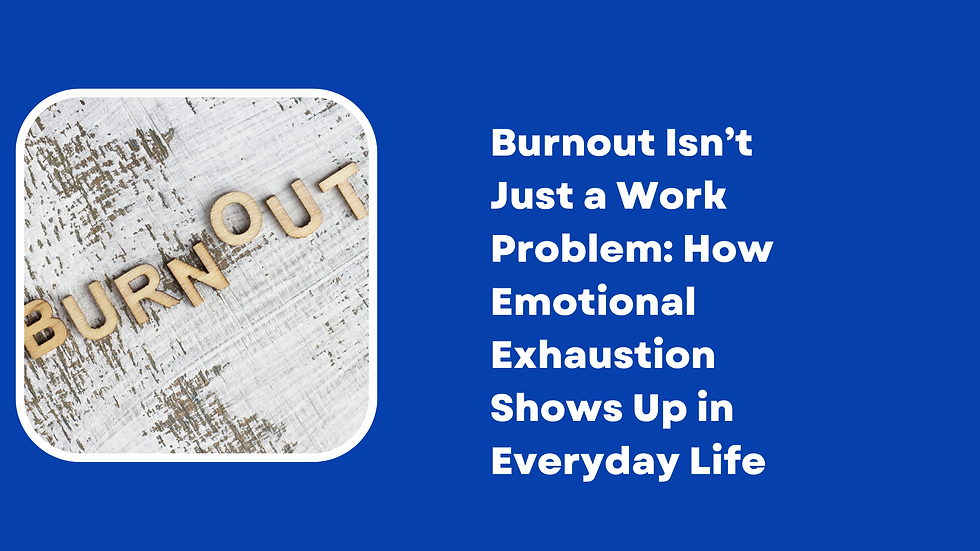How to Set Healthy Boundaries Without Feeling Guilty
- Rebecca DeLong

- Mar 6, 2025
- 3 min read
Setting boundaries is essential for maintaining emotional well-being, yet many people struggle with it. The fear of conflict, disappointing others, or being seen as selfish often prevents individuals from asserting their needs. However, healthy boundaries are not about pushing people away—they’re about fostering respect, self-care, and balanced relationships.
At Tranquil JC, we frequently work with clients who feel drained, overwhelmed, or even resentful because they struggle to set clear limits. If this resonates with you, it’s time to reframe boundaries as a necessary and positive part of life.
Why Boundaries Matter
Many of us are taught from a young age to prioritize others' needs over our own. While kindness and generosity are valuable traits, they should not come at the cost of our mental health. Without boundaries, we risk burnout, resentment, and emotional exhaustion.
Consider this: If you constantly say "yes" when you want to say "no," you’re not showing up as your best self in your relationships. Instead of being present and engaged, you may feel stretched thin, overwhelmed, or even annoyed. Setting boundaries doesn’t mean you care less—it means you care enough about your relationships to show up fully and authentically.
Another common misconception is that boundaries create distance. In reality, clear boundaries strengthen relationships by setting expectations and reducing misunderstandings. When both parties understand what is acceptable, interactions become more genuine and fulfilling.
How to Set Boundaries Without Feeling Guilty
The discomfort that often accompanies boundary-setting is normal, but it doesn’t mean you’re doing something wrong. If you’re used to people-pleasing or avoiding conflict, standing up for your needs may feel unfamiliar at first. However, with practice, it becomes second nature.
One effective approach is to start small and be direct. If you’re uncomfortable declining an invitation, instead of over-explaining, try a simple: “I appreciate the invite, but I won’t be able to make it this time.” If a co-worker constantly interrupts your focus time, a clear statement like “I need an hour of uninterrupted work, but I’m happy to connect later” sets a boundary without unnecessary justification.
The key is consistency. If you establish a boundary but frequently make exceptions, others may not take it seriously. If you’ve told a family member that certain topics are off-limits but continue engaging in those conversations, they will assume the boundary is flexible. Holding firm reinforces your needs and teaches others to respect them.
It’s also helpful to remind yourself that discomfort does not mean wrongdoing. The guilt that may arise when asserting boundaries is often a learned response, stemming from cultural or personal expectations. Over time, reframing guilt as growth can make boundary-setting feel less like a burden and more like an empowering act of self-care.
Embracing Boundaries as a Form of Self-Respect
Healthy boundaries are a reflection of self-worth. When you set them, you communicate to yourself and others that your needs matter. While some people may resist change—especially if they benefited from your lack of boundaries—those who truly respect you will adjust.
At Tranquil JC, we support individuals in navigating this process with confidence. Whether you struggle with guilt, fear of conflict, or simply don’t know where to start, therapy can provide the tools to set boundaries that enhance your relationships rather than strain them.
If you’re ready to prioritize your well-being and build stronger, healthier connections, contact Tranquil JC today. Learning to set boundaries is not about changing who you are—it’s about honoring yourself so you can show up fully in every aspect of your life.






Comments